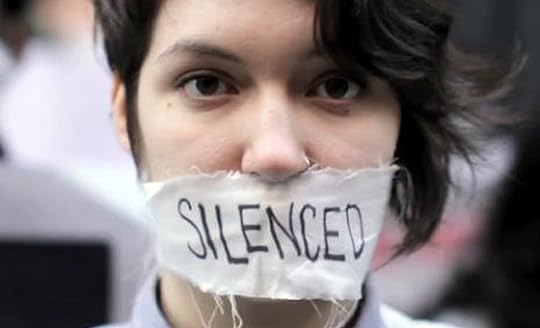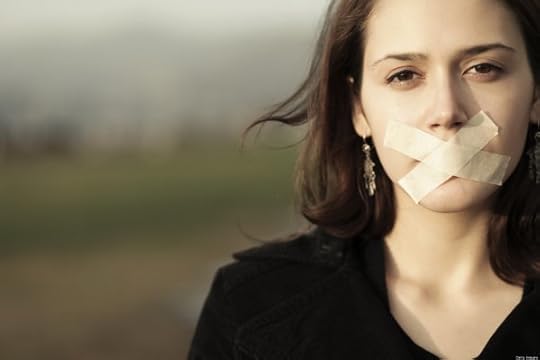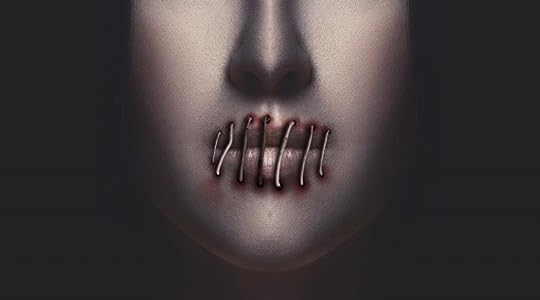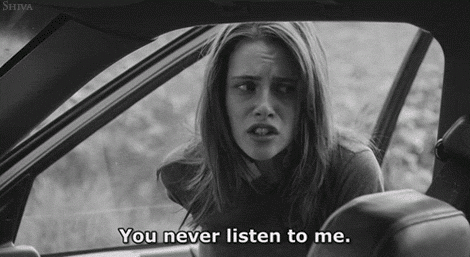What do you think?
Rate this book


336 pages, Hardcover
First published August 21, 2018
"Honestly, Jacko. You're getting hysterical about it."I am absolutely blown away. My heart and soul are just dangling by a thread. Honestly, I have not been this angered (and wonderfully angered) in a long, long time.
Her words flew at me like poisoned arrows. "Well, someone needs to be hysterical around here."

Think about what you need to do to stay free.Denial, deliberation and the decisive moment: three response stages to any impending disaster. Rush through the first two and act as soon as you can. That's how you hold out. That's how you live.
"You have no idea ladies. No goddamned idea. We're on a slippery slide to prehistory girls. Think about it...Think about words like 'spousal permission' and 'paternal consent.' Think about waking up one morning and finding you don't have a voice in anything."No matter how much her friends warned and pleaded with her, she always found a way to deny their concerns - surely not America, surely the government wouldn't go that far, somebody will definitely do something before it's too late...right?
"You know babe, sometimes I wonder if it was better when you didn't talk."Shivers. Oh the many shivers.
Maybe this is how it happened in Germany with the Nazis, in Bosnia, with the Serbs, in Rwanda with the Hutus. I’ve often wondered about that, how kids can turn into monsters, how they can learn that killing is right and oppression is just, how in one single generation the world can change on its axis into a place that is unrecognizable. Easily, I think, and push out of my chair.Words matter.

From this day on, the official language of San Marcos will be Swedish. Silence! In addition to that, all citizens will be required to change their underwear every half-hour. Underwear will be worn on the outside so we can check.There are different lunatics in charge in Vox, but the restrictions are just as insane, if much less amusing. Females are allowed only one hundred words per day. (The official language of American women is silence?) And they will have to wear wrist-band counters that keep track. Exceeding the daily quota results in a painful electrical shock. Run off at the mouth and the punishment becomes deadly. Girls at school are given rewards for speaking the fewest words in a day.




…a late 19th-century/early 20th-century movement in America called the Cult of Domesticity, “The idea was to go back to Biblical roles, to separate men and women,” [Dalcher] says, explaining that women were expected to conform in four ways; piety, purity, submission and domesticity. She adds that there is a modern version of the Cult of Domesticity active in the US right now; the True Woman movement, part of a larger religious campaign called Revive Our Hearts. - From the Bookseller interviewVox is very much in line with the current boom in feminist dystopia novels and with those of the past as well. What pops to mind are The Handmaid’s Tale by Margaret Atwood, wonderfully realized in the Hulu series, Louise Erdrich’s Future Home of the Living God, Hillary Jordan’s When She Woke, and, of course, Ira Levin’s The Stepford Wives. There are plenty more, but these are the ones I have read.



“The only thing necessary for the triumph of evil is for good men to do nothing.”
“You can’t protest what you don’t see coming.”
“Everything lately seems to be a choice between degrees of hate.”

 come to my blog!
come to my blog!


“The average person speaks 16,000 words per day. But what if women were limited to just 100?”and it's not in Iran, or Arab countries, but in the US itself.


